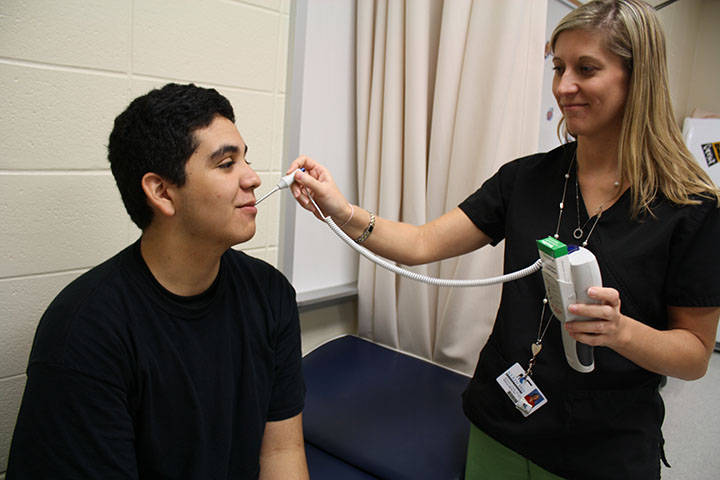How to Safeguard Illness
When winter is approaching, there are many familiar sounds inside of a classroom: a hushed cough, a teacher lecturing, the kid behind you sneezing, students talking, and a medley of sniffles coming from one congested peer. Oh yes, allergies and viruses are in the air.
Changes in the seasons comes with a change in the weather and environment. As temperature’s drop there is an increase in respiratory problems, trees are losing their pollen and causing people to get hay fever. It is most important to keep healthy in the winter more than anything else.
“School starts as it is beginning to get colder, and kids are more likely to exchange germs they otherwise wouldn’t,” health science teacher Melissa Dawson said. “It’s important to keep healthy year round, but respiratory infections are more common in the winter months.”
When it gets colder, people tend to stay indoors and keep their windows closed. Doing this keeps people in a closer proximity, allowing germs to spread easier and for dust to collect faster. This is why it is important to frequently clean and disinfect objects in your home.
“Germs live on surfaces. You should disinfect your bathroom and kitchen regularly,” according to the Alameda County Public Health Department website. “You should disinfect any areas that someone with even a common cold go to.”
You should never share drinks or makeup, and you should also wash your hands for at least 20 seconds, or the amount of time it takes to sing “Happy Birthday” twice. If you are coughing, sneezing, or have a sore throat for no apparent reason, you should always stay home, to decrease the chance of spreading a virus to another person.
“You must use common sense before you expose others at work and school to your cold virus,” the WebMD website said. “If you’re just sniffling, then it’s most likely just allergies, but if you’re coughing, sweating, shivering, and sniffling, you probably have a common cold.”
Students also take precautions towards getting sick. Many carry portable hand sanitizers or tissues in their backpacks that are easily accessible whenever they need them.
“I take vitamins and get my vaccines done to keep up my immune system,” junior Katherine Olive said. “It’s just important to check in with your health. Like, whenever you feel like you may be getting a sick, you should always check in with a doctor and make sure you’re okay.”
When preventing yourself from getting sick, you should always remember to steer clear of others who are coughing and sneezing, keep hand sanitizer around, cough and sneeze into your sleeve, and not share items that come in contact with the eyes, mouth, or nose.
“Overall, people just need to remember to take care of themselves,” Melissa Dawson said. “Everyone should just eat healthy, get rest, stay clean, and always keep up with their vaccinations.”


